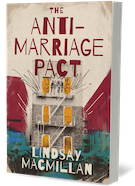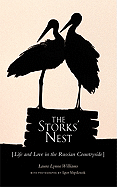Notes: Brazilian Merger; L.A. Author-Store Lovefest
Saraiva Group, owner of Livraria Saraiva, which has 36 stores in
Brazil, has bought Siciliano, the Brazilian bookstore chain founded in
1928 that has 52 stores and 11 franchise operations.
Saraiva
described the two companies' operations as "complementary." Most of the
stores do not overlap geographically, and Siciliano stores are located
in "important commercial areas where Saraiva does not have a
significant penetration." Siciliano also publishes under the Arx,
Futura, Caramelo and Arxjovem imprints.
Besides books, Livraria
Saraiva sells CDs, DVDs, magazines, stationery and some electronics and
information technology. It boasts opening the first superstore in
Brazil, in 1996, and has online retailing operations that account for a third of company gross revenue.
Founded
by Pedro Siciliano, Siciliano originally sold only newspapers and
magazines. In 1942, it opened its first bookstore, in Sao Paulo.
---
The Book Shelf,
Winona, Minn., is considering moving in with and helping resurrect the
Blue Heron Coffeehouse, which closed last month, according to the Winona Daily News.
"It's
like a marriage made in heaven," Blue Heron co-owner Colleen Wolner
told the paper. "We're excited for the opportunity to keep cooking in
this community."
If the merger, which is dependent on obtaining
financing, occurs, Book Shelf will make changes in inventory. It will
drop textbooks and slim down business, computer and art books. Most
other sections will stay the same, while poetry and local authors will
be expanded.
The paper noted that Book Shelf owner Chris
Livingston "plans to offer writing classes and seminars through a
venture called Hawk's Well Literary Center. He also hopes to establish
a publishing company, with the first offering hitting bookshelves in
2009."
---
Bookselling This Week profiles the Book and Cranny, which opened in Statesboro, Ga., last April. The 1,425-sq.-ft. store stocks 10,000 titles and features large children's and fiction sections.
Owner Deborah Campbell, a former Lucent Technology engineer, said that residents are happy to have a general bookstore in the town, adding, "People also appreciate being able to get their books without having to drive. . . . Although we have a lot of repeat customers, we get new ones everyday. When they find out I can get them any book they want, I don't charge them anything to order it, and I can get it faster than they can get it from Amazon, they become regulars."
---
Congratulations to Arlene Lynes, owner of Read Between the Lynes, Woodstock, Ill., opened two years ago, who has won the Chamber of Commerce 2007 Retailer of the Year Award.
---
Authors lavish praise on L.A. bookstores in the Los Angeles Times.
For one, Susan Straight remembers, "When my first book was published,
in 1990 by Milkweed Editions, I didn't actually feel like a writer
until I read at Dutton's Bookstore in Brentwood."
Although she
also mentions Skylight Books, Vroman's Bookstore, Eso Won Books, Libros
Revolución and Imagine That!, Straight says that "Dutton's was the
first independent bookstore I'd ever been in, and on that night when I
read, I felt very L.A., even though I had to drive back to Riverside. I
can't believe we won't be able to mingle in that courtyard and reach up
to the top of those shelves and visit."
Janet Fitch says she has
"been going to Skylight Books since before it was Skylight, since it
was Chatterton's and I lived around the corner. It's a real
neighborhood bookstore in that it's a mirror of the neighborhood."
Marisa
Silver, who recommends Portrait of a Bookstore, asks, "What is it we
love about a good bookstore? The selection? The intelligence of the
sales people? The ambience? It's those things, but I think it's
something else: I think a great bookstore is a place where you feel you
can go to find your tribe, to be around people who make them feel,
well, less alone. They're looking for their kin. The same is true with
book lovers. We want to find our corner bar equivalent, a place where,
if everyone doesn't exactly know our name, at least they recognize and
accept our particular obsession."
Eso Won Books is one of Chris
Abani's favorites: "Like Dutton's, there are books everywhere--shelves,
piles on the floor, on tables, and like any independent store, it
stocks famous and more obscure writers side by side and can tell you in
an instant who they think you will like. It feels like home, like my
childhood. It's a book lover's paradise."
T. Jefferson Parker
loves Book Carnival. "I've been signing there for 20 years. It's a
small, humble specialty store run by Ed and Pat Thomas, great readers
and great folks. It's a long, narrow store filled with posters, rare
and collectible books, thousands of mysteries. It isn't coiffed, but
it's got charm, and you can find what you're looking for. . . . It's a
terrific place--good will, good books, good people."
Eric Lax
likes "the feel of Book Soup--I like walking in and having this
stop-frame avalanche of books. Somehow they manage to get 30,000 titles
or whatever they have. It's not endless aisles: It's a manageable
labyrinth. You can stop, pull a book down, read it, and hope someone
doesn't step on you. It lends itself to reading and browsing."
And
Yxta Maya Murray notes that she "received an informal PhD in literature
at the IliadBookshop in the late 1990s. I remember the first day I
walked off of Vineland Avenue into the shop in winter 1997: As soon as
I saw the rugs, stuffed bookshelves, a shaggy dog, cats, dilapidated
sofas, and the community of book freaks presided over by Bob and Dan,
the last known book-druids living in Los Angeles, I knew I was at home.
"
---
"Memoir fabulists getting caught means the system is working" argued Ben Yagoda in Slate,
which featured an extensive and at times hilarious overview of the most
recent examples of nonfiction committed to paper with intent to deceive.
"But
is it such a terrible thing that so many lying memoirists have been
exposed?" asked Yagoda. "On the contrary: It's evidence that the system
works. . . . The perpetrators have eventually been found out. Or, to be
more precise, the more brazen or audacious the lie, the greater the
likelihood of exposure."
Slate also featured Christopher Beam's "The Fake Memoirist's Survival Guide," with these helpful tips:
- Specificity is your enemy.
- Write what you know--but no one else does.
- Be a victim.
- Check your paper trail.
- Don't leave witnesses.
- Don't leave clues!
- Don't tell anyone.
- Beware of blurbs.
And, finally, Slate offered a sneak video peek at volume two of Margaret B. Jones' memoirs.
|






SHELFAWARENESS.0213.S4.DIFFICULTTOPICSWEBINAR.gif)







SHELFAWARENESS.0213.T3.DIFFICULTTOPICSWEBINAR.gif)
 Rosina Lippi (who also writes under the penname Sara Donati) was born and raised in Chicago but has lived many places, from small villages in the Austrian Alps to rural New Jersey. Since 1998, she has made her home on Puget Sound north of Seattle, with her husband (known to her weblog readers as the Mathematician), her daughter (the Girlchild) and two dogs. Rosina has a doctorate in linguistics, which she used to good effect as a college professor for 12 years, at which point she escaped academia before it was too late. She now writes fiction full time. Or at least, she tries to. Her newest novel is The Pajama Girls of Lambert Square (Putnam), which arrived in bookstores on Valentine's Day. Stop by Rosina's
Rosina Lippi (who also writes under the penname Sara Donati) was born and raised in Chicago but has lived many places, from small villages in the Austrian Alps to rural New Jersey. Since 1998, she has made her home on Puget Sound north of Seattle, with her husband (known to her weblog readers as the Mathematician), her daughter (the Girlchild) and two dogs. Rosina has a doctorate in linguistics, which she used to good effect as a college professor for 12 years, at which point she escaped academia before it was too late. She now writes fiction full time. Or at least, she tries to. Her newest novel is The Pajama Girls of Lambert Square (Putnam), which arrived in bookstores on Valentine's Day. Stop by Rosina's  Laura Lynne Williams lives in Chukhrai, a small Russian village, surrounded on three sides by a nature preserve and virtually inaccessible. Its population has dwindled to 21; the only people left are the ones who aren't smart or lucky enough to leave. "And then there are Igor and me, two naturalists who find solace in the village's remoteness, in its total immersion in the wilderness of the Bryansk Forest, and in each other." She met her husband, Igor Shpilenok, while working in Moscow for the World Wildlife Fund, when he wrote a proposal requesting a grant for the Bryansk Forest zapovednik, a federally protected nature sanctuary. He had started the sanctuary in 1984 to protect the endangered black stork, which nests only in isolated areas and needs old growth forest for its massive nests.
Laura Lynne Williams lives in Chukhrai, a small Russian village, surrounded on three sides by a nature preserve and virtually inaccessible. Its population has dwindled to 21; the only people left are the ones who aren't smart or lucky enough to leave. "And then there are Igor and me, two naturalists who find solace in the village's remoteness, in its total immersion in the wilderness of the Bryansk Forest, and in each other." She met her husband, Igor Shpilenok, while working in Moscow for the World Wildlife Fund, when he wrote a proposal requesting a grant for the Bryansk Forest zapovednik, a federally protected nature sanctuary. He had started the sanctuary in 1984 to protect the endangered black stork, which nests only in isolated areas and needs old growth forest for its massive nests. 